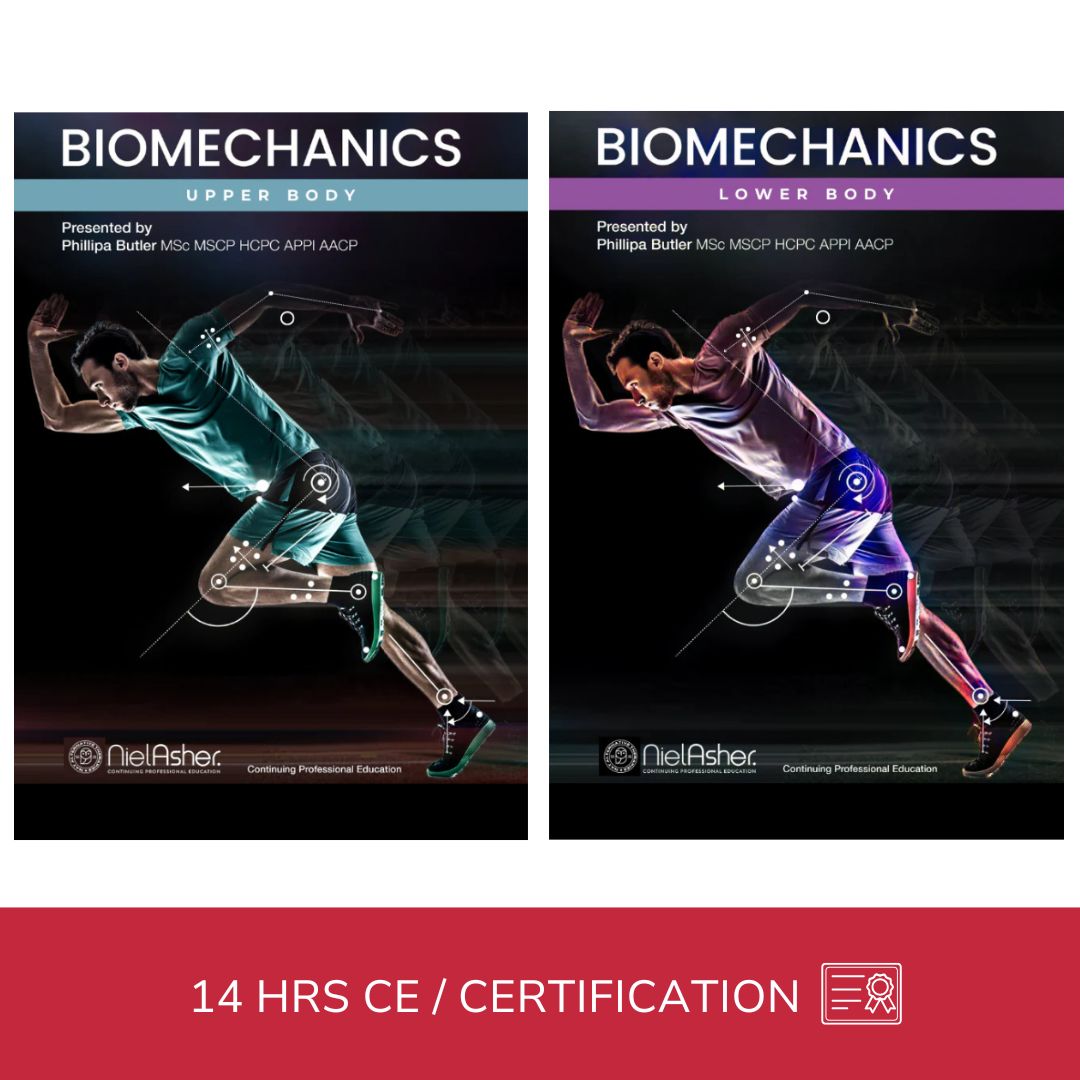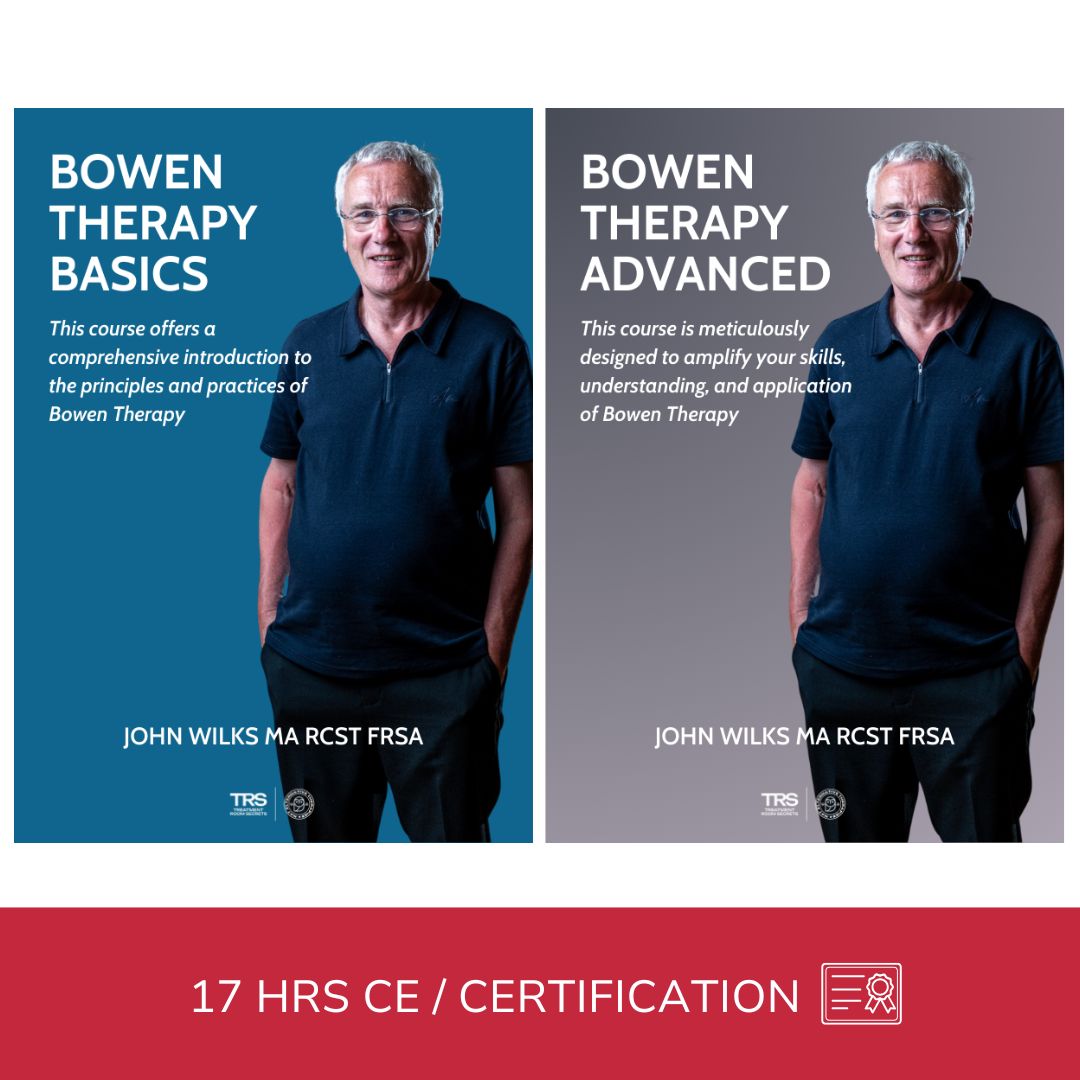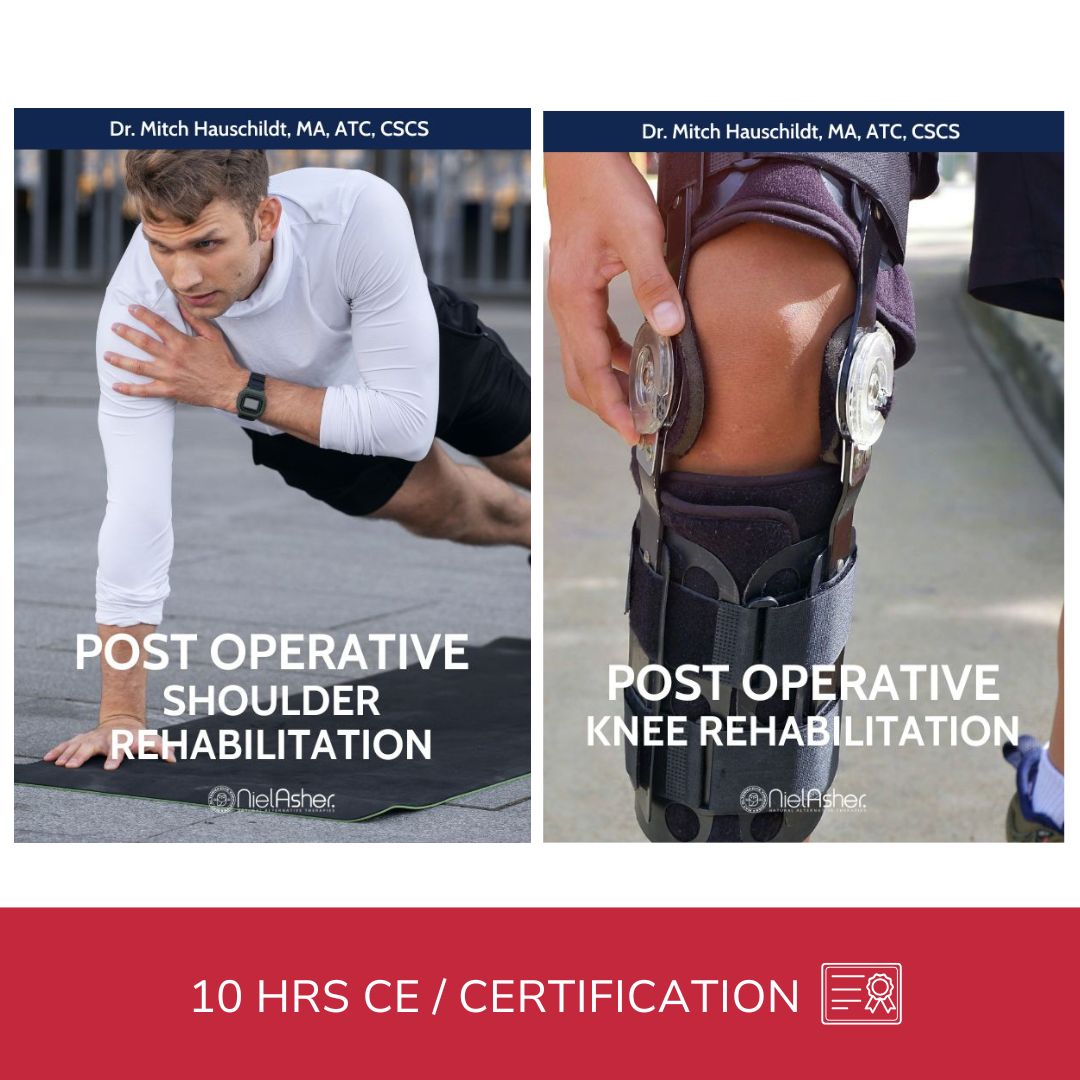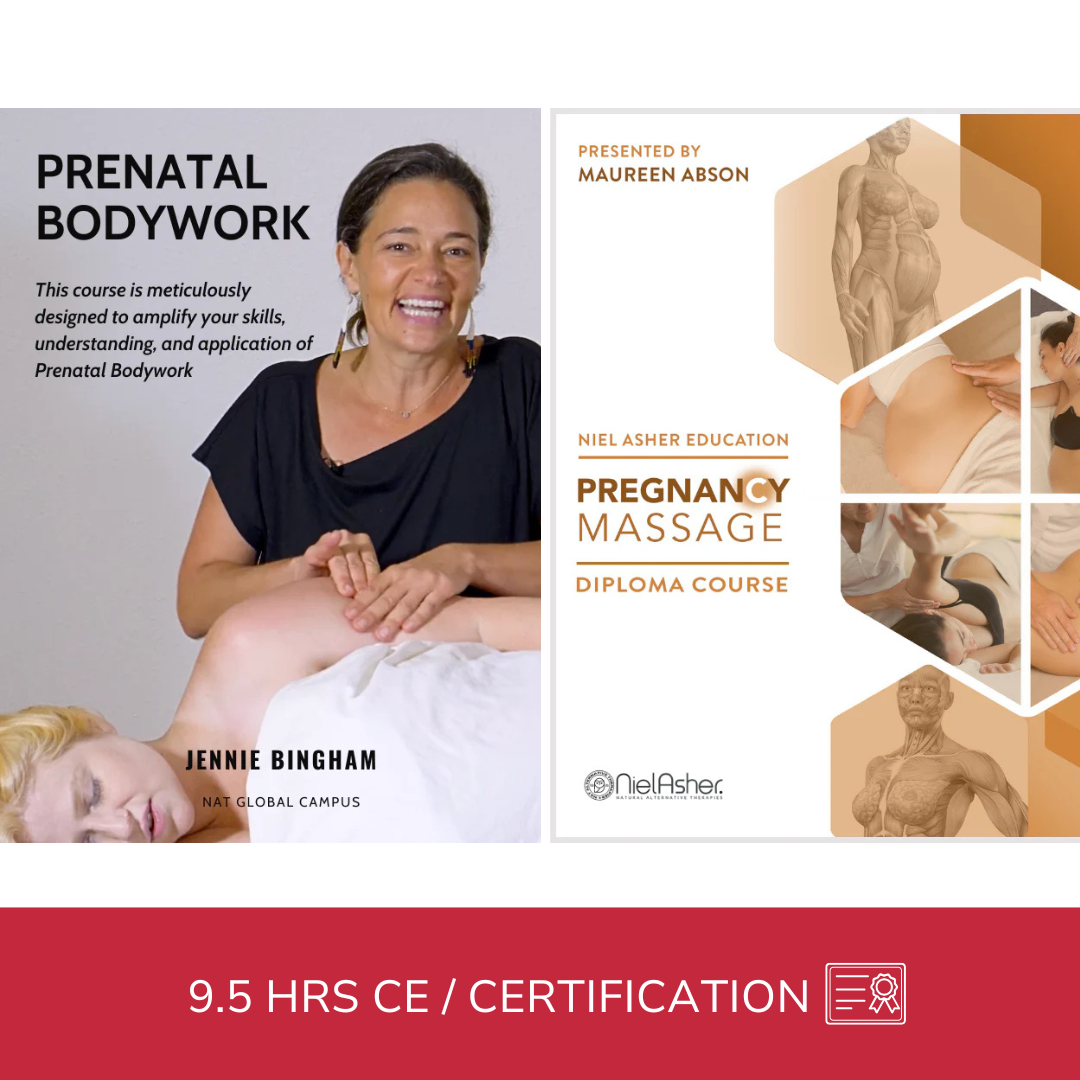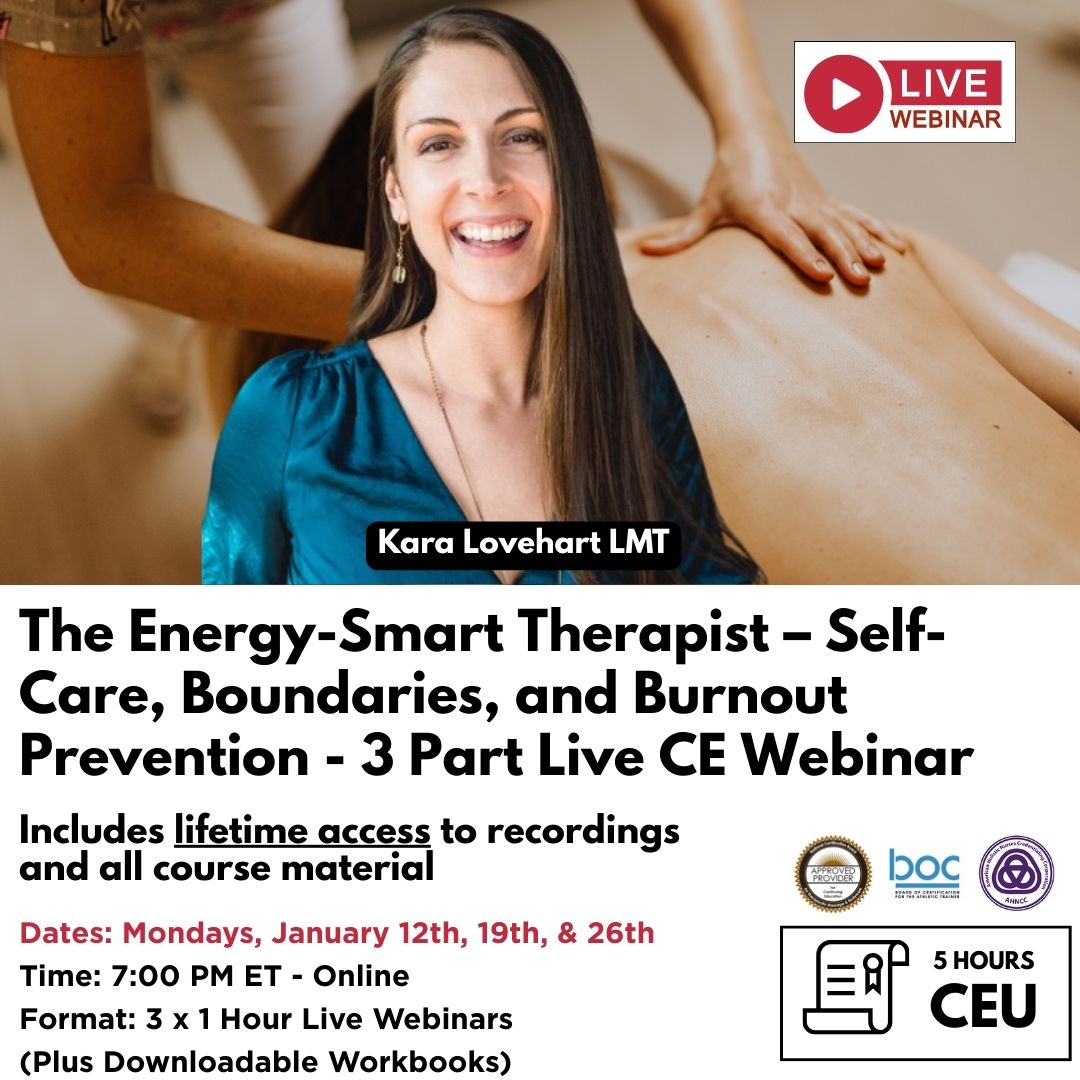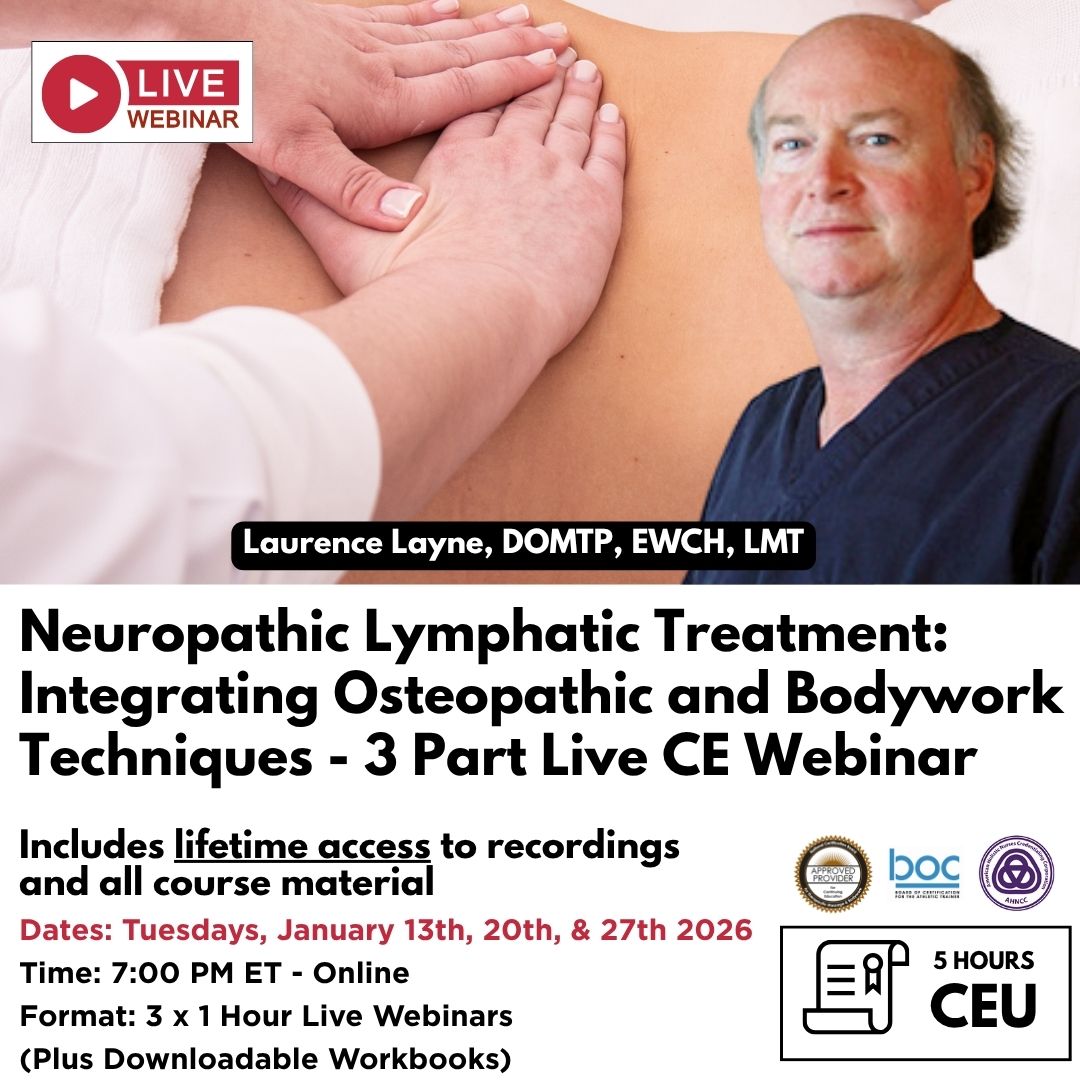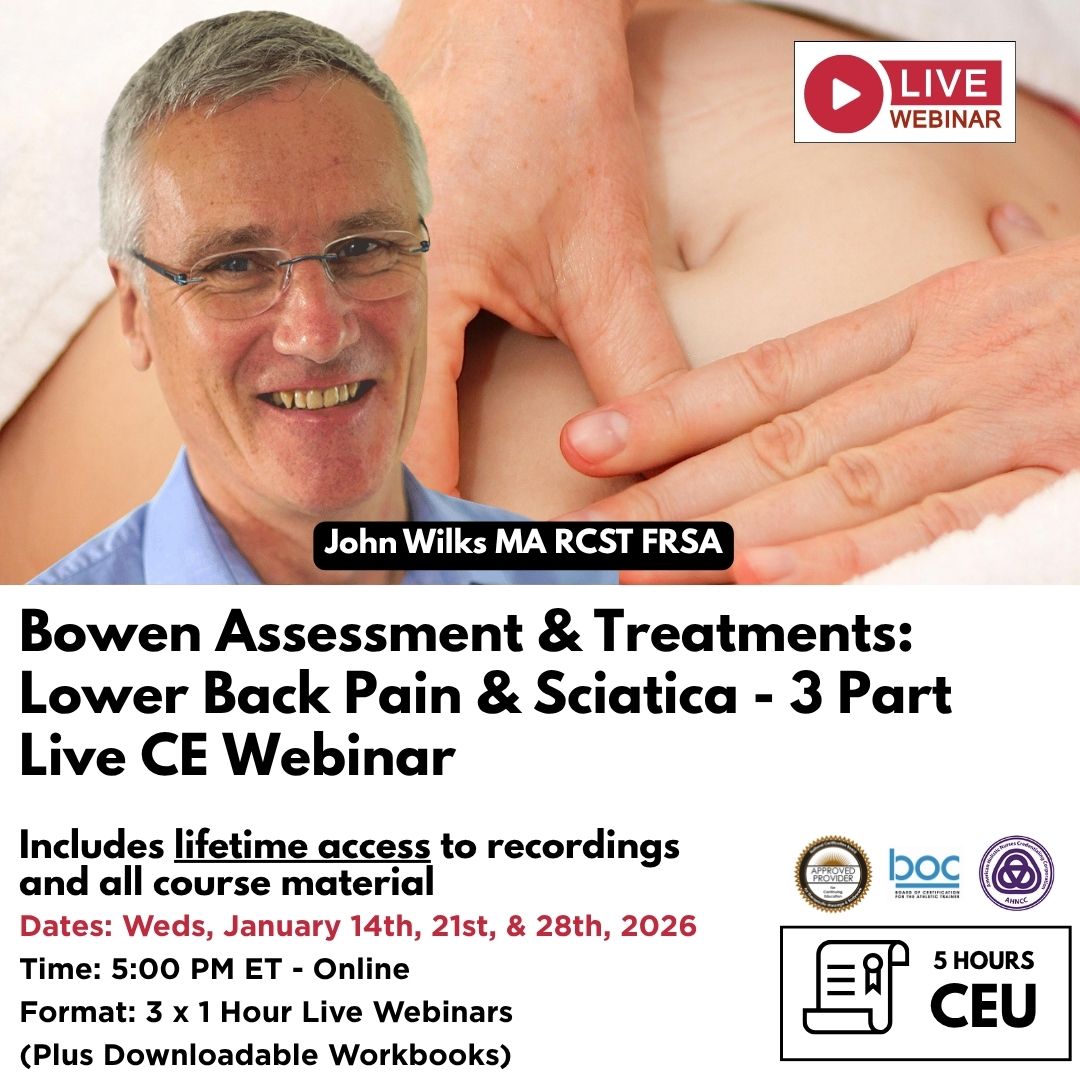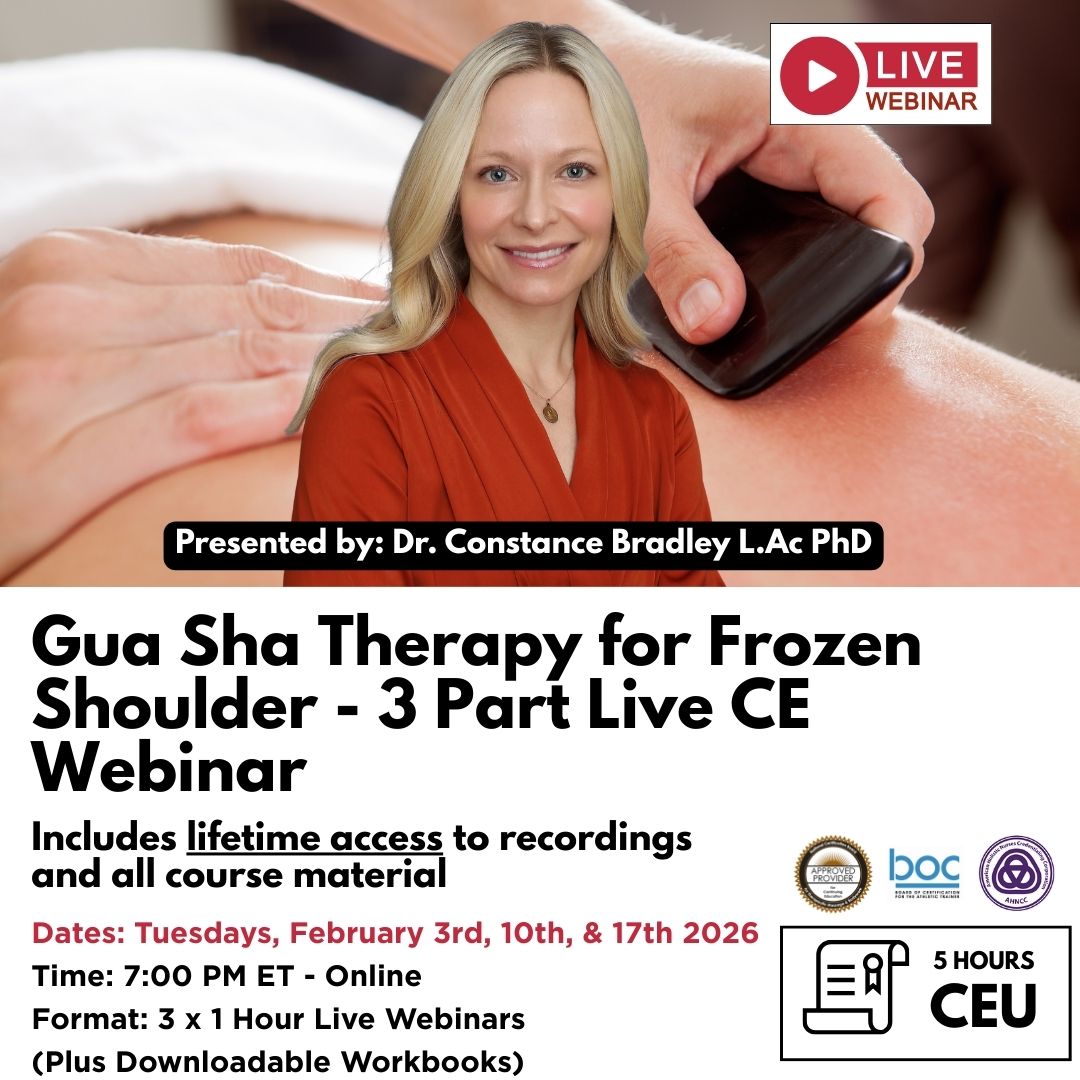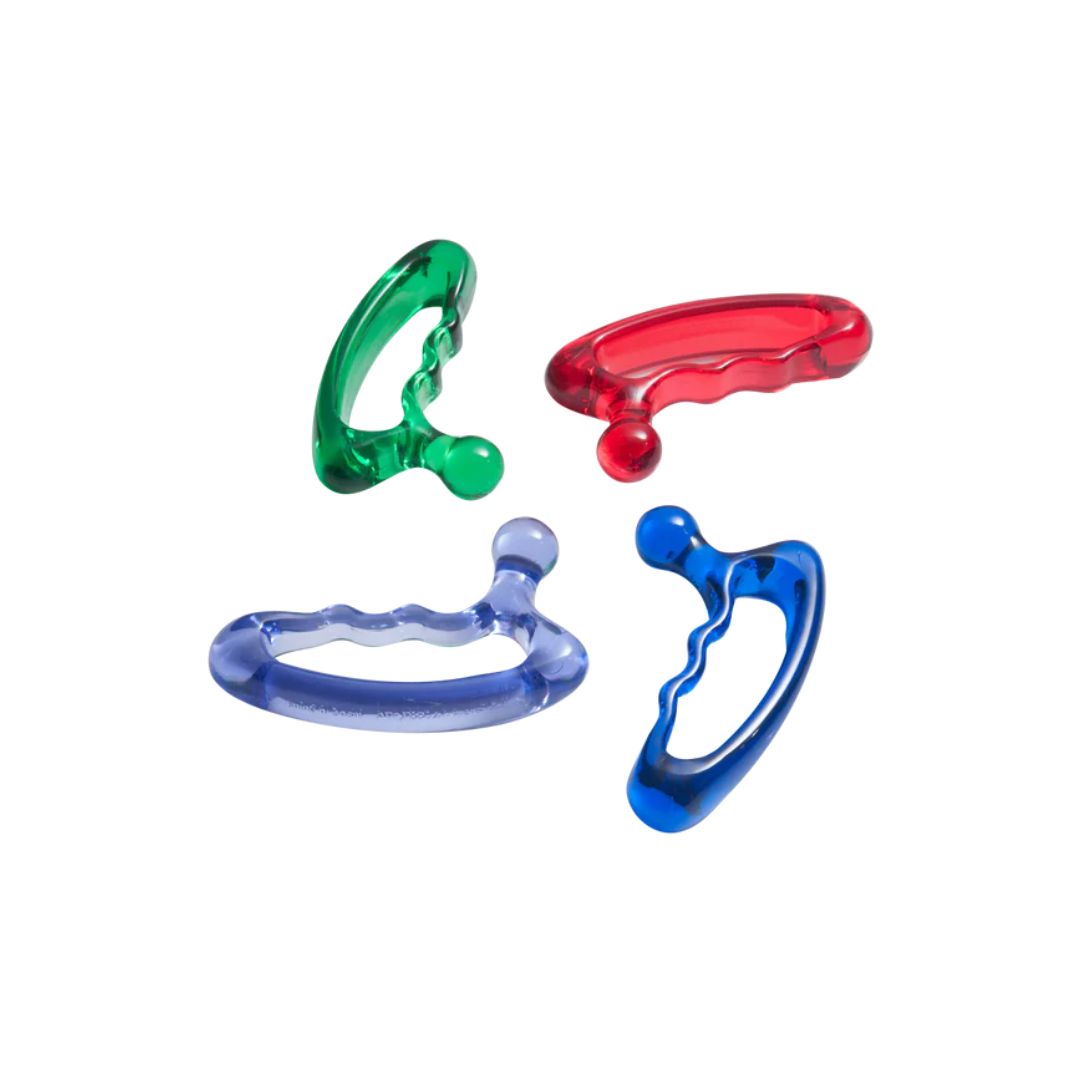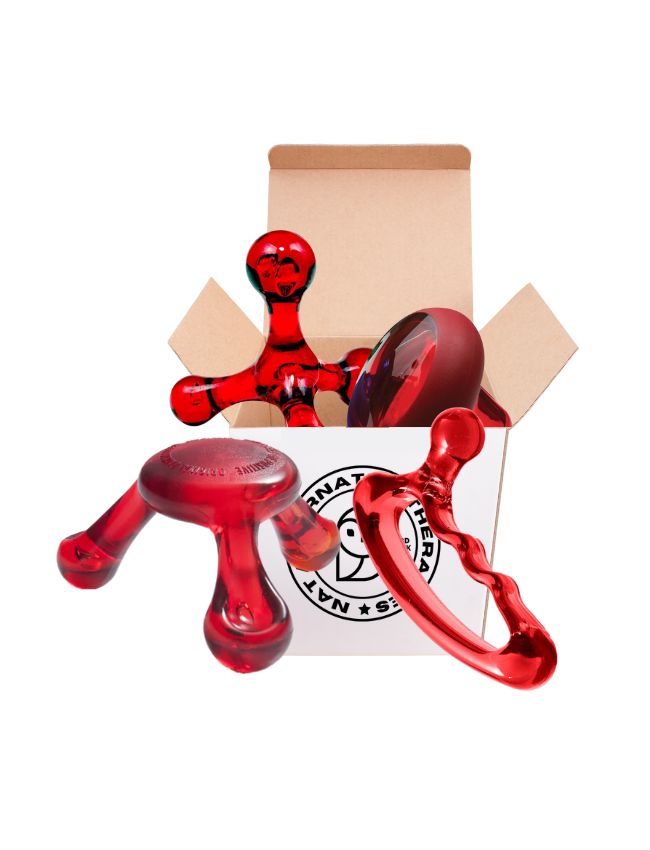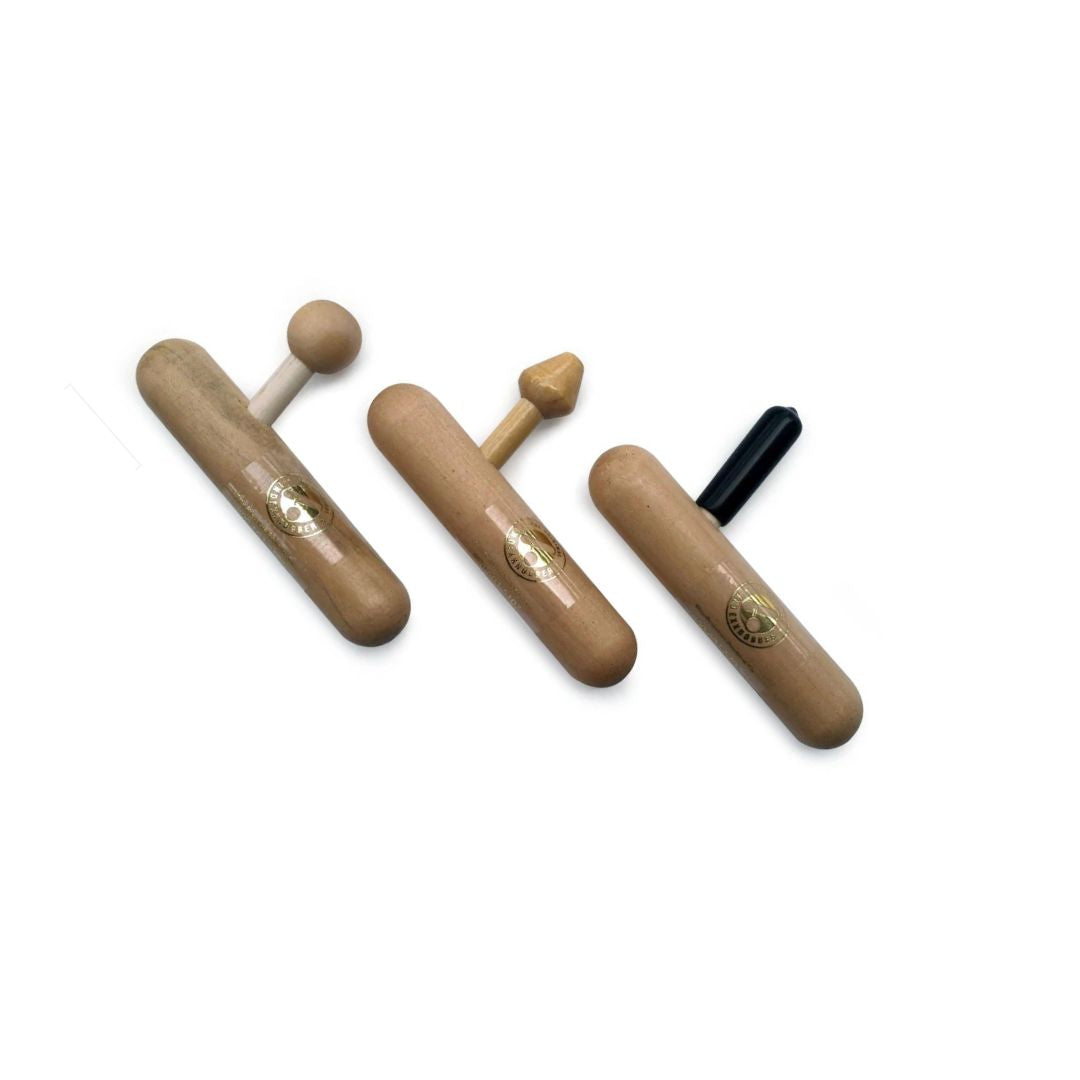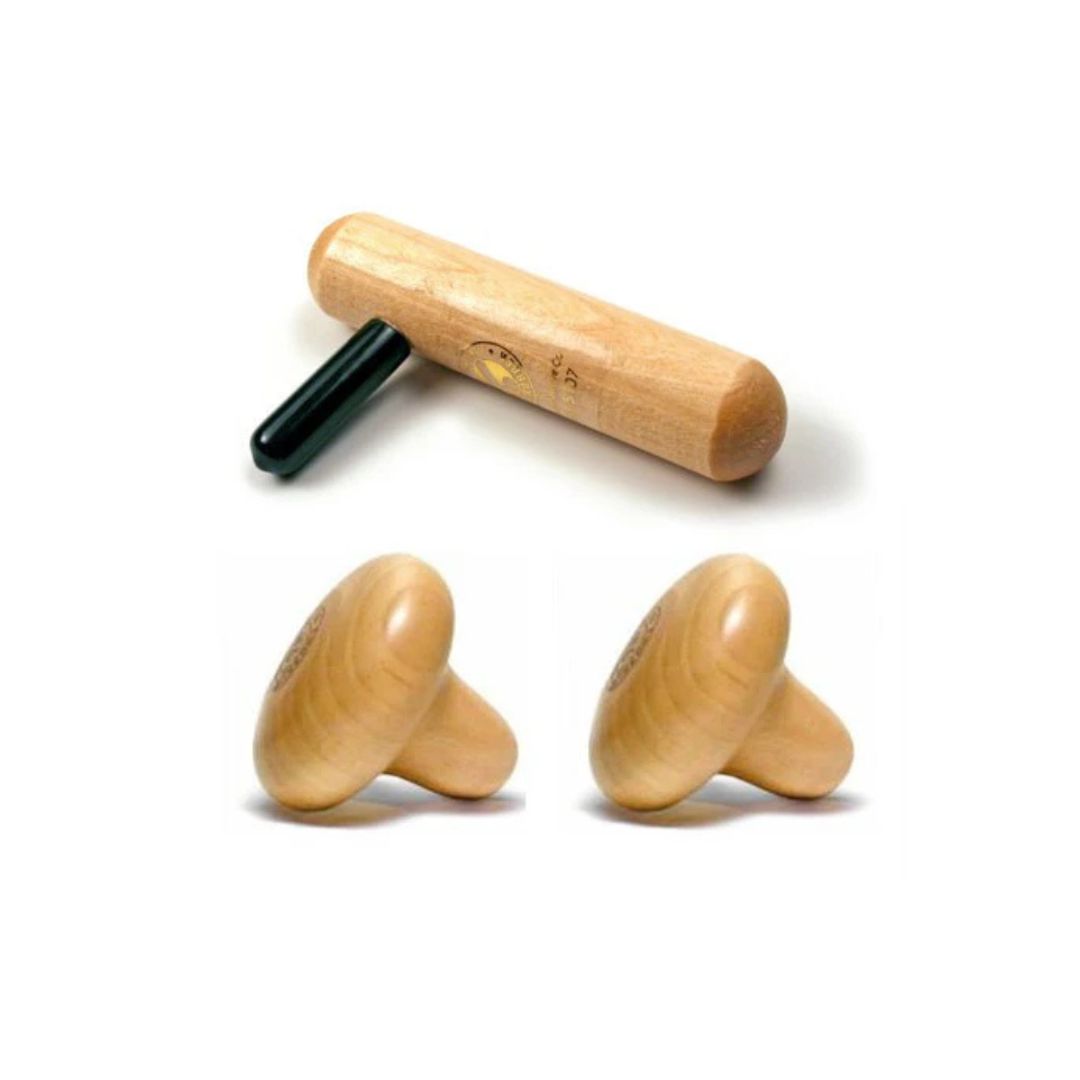Stretching for Pain Relief - Pectoralis Major and Minor
Two Great Exercises for Loosening the Pecs
Trigger points in the Pectoralis muscles are common and often develop as a result of poor posture or overload
Along with the pectoralis minor, the pectoralis major forms the anterior wall of the axilla.
The pectoralis major can develop multiple trigger points. These typically refer pain across the anterior deltoid and down the lateral aspect of the arm into the thumb and fourth and fifth digits.
These trigger points may, in rare cases, mimic the symptoms of angina. Pain from these trigger points can also be felt as interscapular and subscapular pain.
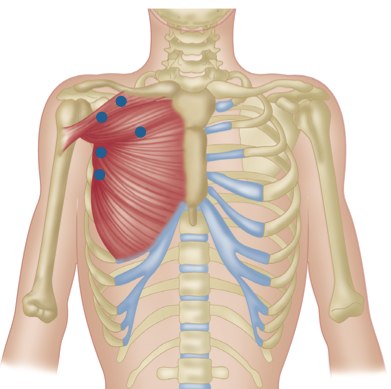
Pec Major - Common Trigger Points
Origin
Clavicular head: medial half or two-thirds of front of clavicle. Sternocostal portion: front of manubrium and body of sternum. Upper six costal cartilages. Rectus sheath.
Insertion
Crest below greater tubercle
of humerus. Lateral lip of intertubercular sulcus (bicipital groove) of humerus.
Action
Adducts and medially rotates humerus.
Clavicular portion: flexes and medially rotates shoulder joint, and horizontally adducts humerus toward opposite shoulder. Sternocostal portion: obliquely adducts humerus toward opposite hip.
Pectoralis major is one of the main climbing muscles, pulling the body up to the fixed arm.
Nerve
Nerve to upper fibers: lateral pectoral nerve, C5, 6, 7.
Nerve to lower fibers: lateral and medial pectoral nerves, C6, 7, 8, T1.
Basic Functional Movement
Clavicular portion: brings arm forward and across body, e.g. as in applying deodorant to opposite armpit.
Sternocostal portion: pulling something down from above, e.g. a rope in bell ringing.
Referred Pain
Clavicular portion: local pain, radiating to anterior deltoid and long head of biceps brachii area. Sternal portion: “acute” back pain into anterior chest wall in a 10–20 cm patch of diffuse pain around medial border of upper extremity.
Stronger pain below medial epicondyle in a 5 cm patch, diffuse pain into 4th and 5th digits.
Costal portion: 5th and 6th ribs leads to severe cardiac referral (even at night). Intense breast pain (10–15 cm patch). Diffuse radiations into axillary tail, and into axilla.
Indications
Post myocardial infarct rehabilitation, cardiac arrhythmia, mid-scapular back pain, breast pain and hypersensitivity, thoracic outlet syndrome, anterior shoulder pain, golfer’s and tennis elbow, round- shouldered postures, chest pain, chronic fatigue, hyperventilation syndrome.
Causes
Poor posture while sitting, round- shouldered postures, heavy lifting, chilling of muscle in air conditioning, immobilization of shoulder or arm in cast or sling, anxiety and poor breathing, sports overload (e.g. weight training, rowing, boxing, push-ups).
Differential Diagnosis
C5–C6 radiculopathy. Biceps tendonitis. Rotator cuff muscle lesions. Intrathoracic pathology. Esophageal pathology. Tietze’s syndrome. Ischemic heart disease (angina). Thoracic outlet syndrome.
Connections
Latissimus dorsi, subscapularis, teres minor, infraspinatus, trapezius (middle fibers), serratus anterior, scalenes, deltoid, coracobrachialis, sternalis, SCM, paraspinals.
General Advice
Round-shouldered posture leads to shortening. Work sitting posture is key. Sleeping posture, especially hands folded over chest or hands above head. Bra type and support may be relevant.
Stretching and Mobility
See the video above for two great exercises for shoulder mobility - ideal for tight pecs and latent trigger points.
If you have a partner to work with, you can also try the following stretch.
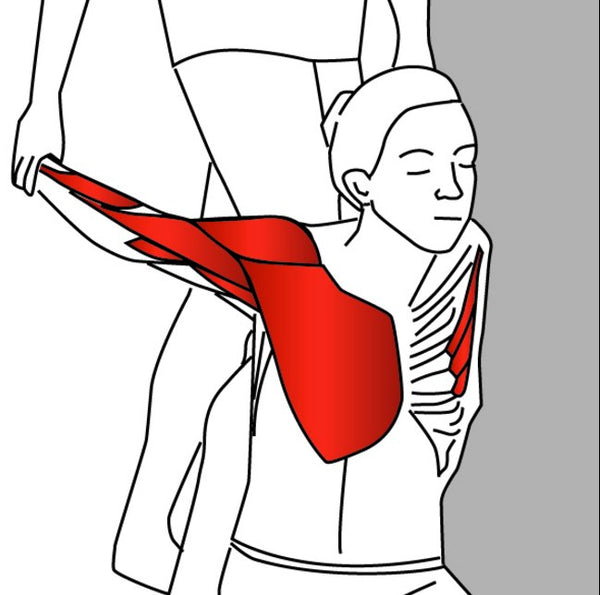
Technique
Sit on the ground and have a partner stand behind you. Reach behind with both arms and have the partner (gently) further extend your arms.
Muscles Being Stretched
Primary muscles: Pectoralis major and minor. Anterior deltoid.
Secondary muscles: Biceps brachii. Brachialis. Brachioradialis. Coracobrachialis.
Injury Where This Stretch Might Be Useful
Dislocation. Subluxation. Acromioclavicular separation. Sternoclavicular separation. Impingement syndrome. Rotator cuff tendonitis. Shoulder bursitis. Frozen shoulder (adhesive capsulitis). Biceps tendon rupture. Bicepital tendonitis. Biceps strain. Chest strain. Pectoral muscle insertion inflammation.
Important Notes for This Stretch
Keep your palms facing outward and your arms slightly above parallel to the ground.
Links
Find a Trigger Point Professional in your area
More Articles About Trigger Points
Dry Needling for Trigger Points
Certify as a Trigger Point Therapist
About NAT Courses
As a manual therapist or exercise professional, there is only one way to expand your business - education!
Learning more skills increases the services that you offer and provides more opportunity for specialization.
Every NAT course is designed to build on what you already know, to empower you to treat more clients and grow your practice, with a minimal investment in time and money.
Help Desk
About Niel Asher Education
Niel Asher Education is a leading provider of distance learning and continued education courses.
Established in the United Kingdom in 1999, we provide course and distance learning material for therapists and other healthcare professionals in over 40 countries.
Our courses are accredited by over 90 professional associations and national accreditation institutions including the National Academy of Sports Medicine (NASM) and National Certification Board for Therapeutic Massage and Bodywork (NCBTMB). Full details of all international course accreditations can be found on our website.
Printed course materials and other products offered on our websites are despatched worldwide from our 3 locations in the UK (London), USA (Pennsylvania) and Australia (Melbourne).
More About Us
NAMTPT AWARD
We are honored to have received the 2017 "Excellence in Education" Award from the National Association of Myofascial Trigger Point Therapists.
Since 1999 Niel Asher Education has won numerous awards for education and in particular for education and services provided in the field of trigger point therapy.
Read Full Article
Award Winning Instructors
Niel Asher Healthcare course instructors have won a host of prestigious awards including 2 lifetime achievement honorees - Stuart Hinds, Lifetime Achievement Honoree, AAMT, 2015, and Dr. Jonathan Kuttner, MD, Lifetime Achievement Honoree, NAMTPT, 2014.
Meet the Instructors
Accreditation

If you are a qualified/licensed manual therapist or exercise/fitness professional you can expand your credentials with NAT certification.
In addition to national accreditation for continued education, each course that we offer includes "NAT Learning Credits". By taking and completing courses you can accumulate NAT credits to qualify for NAT certification.
There are currently 3 levels of NAT certification. Certifying NAT is a valuable way to show your clients that you take continued education seriously, and to promote your skills and qualifications.
Most of our courses are accredited for CE/CPD/CPE. A full list of CE accreditations can be found by clicking on the link below.
About NAT Certification
Niel Asher Technique
Since 1999 the Niel Asher Technique for treating trigger points has been adopted by over 100,000 therapists worldwide, and has been applied to the treatment of a number of common musculoskeletal injuries.
The Niel Asher Technique for treating frozen shoulder was first introduced and published in 1997 and has been widely adopted by therapists and exercise professionals working within elite sports and athletics.
Read More
International Students
Most of our courses are available as either "Printed" or 'Download" editions, wherever you live. Internet connection is required to access online and downloadable material.
When you purchase a download edition, you receive immediate lifetime access to all course material. Course texts can be downloaded and printed if required.
When you purchase a "Printed" edition, you will also receive free access to the download edition.
We ship Worldwide from locations in the USA, UK, and Australia. Most items are despatched within 24 hours and shipping is FREE for all orders over US$50.
Shipping
Where to Start?
We offer a range of over 50 courses, presented by some of the worlds leading manual therapists. All courses are reviewed annually, and new courses are regularly added.
Our courses are modular, and designed to build on what you already know. For more information, please visit our "Where to Start?" page.
Start Here
This trigger point therapy blog is intended to be used for information purposes only and is not intended to be used for medical diagnosis or treatment or to substitute for a medical diagnosis and/or treatment rendered or prescribed by a physician or competent healthcare professional. This information is designed as educational material, but should not be taken as a recommendation for treatment of any particular person or patient. Always consult your physician if you think you need treatment or if you feel unwell.
About Niel Asher Education
Niel Asher Education (NAT Global Campus) is a globally recognised provider of high-quality professional learning for hands-on health and movement practitioners. Through an extensive catalogue of expert-led online courses, NAT delivers continuing education for massage therapists, supporting both newly qualified and highly experienced professionals with practical, clinically relevant training designed for real-world practice.
Beyond massage therapy, Niel Asher Education offers comprehensive continuing education for physical therapists, continuing education for athletic trainers, continuing education for chiropractors, and continuing education for rehabilitation professionals working across a wide range of clinical, sports, and wellness environments. Courses span manual therapy, movement, rehabilitation, pain management, integrative therapies, and practitioner self-care, with content presented by respected educators and clinicians from around the world.
Known for its high production values and practitioner-focused approach, Niel Asher Education emphasises clarity, practical application, and professional integrity. Its online learning model allows practitioners to study at their own pace while earning recognised certificates and maintaining ongoing professional development requirements, making continuing education accessible regardless of location or schedule.
Through partnerships with leading educational platforms and organisations worldwide, Niel Asher Education continues to expand access to trusted, high-quality continuing education for massage therapists, continuing education for physical therapists, continuing education for athletic trainers, continuing education for chiropractors, and continuing education for rehabilitation professionals, supporting lifelong learning and professional excellence across the global therapy community.
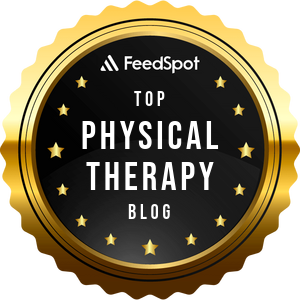
Continuing Professional Education
Looking for Massage Therapy CEUs, PT and ATC continuing education, chiropractic CE, or advanced manual therapy training? Explore our evidence-based online courses designed for hands-on professionals.


